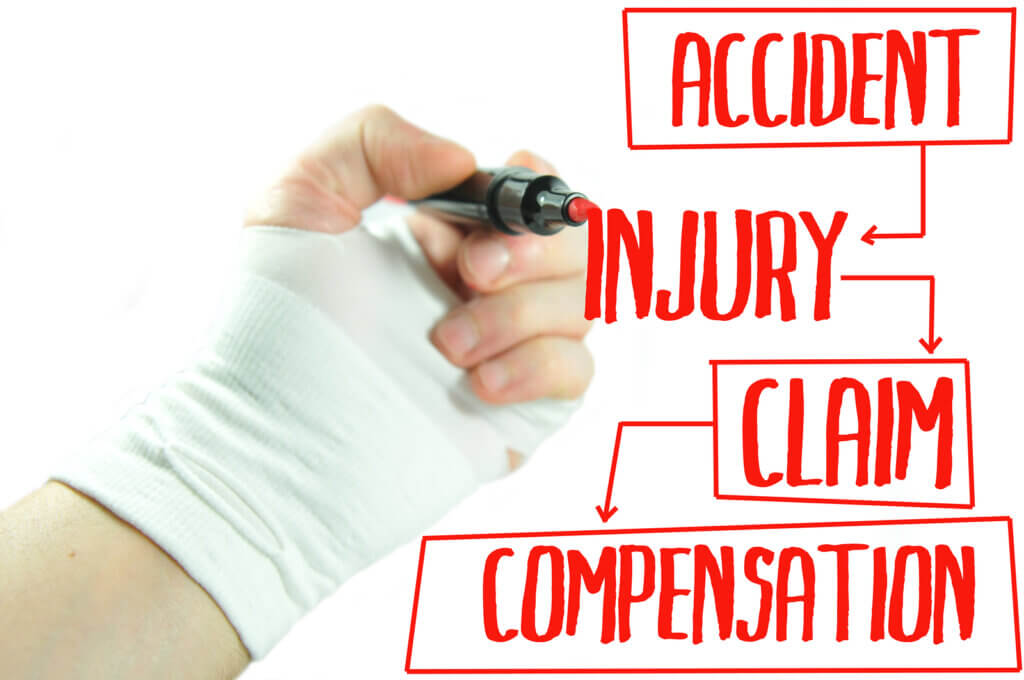Strategy In Personal Injury Settlements
Tips for Getting The Best Personal Injury Settlement
Devise your best strategy for negotiating a personal injury settlement after any kind of accident.
- Have a Specific Settlement Amount in Mind
In putting together your personal injury settlement demand letter, you figured out a range of what you believe your claim is worth. Before you speak to an insurance adjuster about your demand, decide on a minimum settlement figure you would accept within that range. This figure is for your own information, not something you would reveal to any adjustor. But before the offers and counter offers start going back and forth, it helps if you already have your bottom line in mind.
Remember, you don’t have to cling to the figure you originally set for yourself. If the adjustor points out facts that you had not considered but which clearly makes your claim weaker, you may have to lower your minimum figure somewhat. And if the adjuster starts off with a low settlement, or if you discover evidence that makes your claim stronger, you may want to revise upward.
- Do Not Jump At The First Offer
Its standard practice for insurance adjusters to begin negotiations by first offering a very low amount. With this tactic, the adjuster is trying to find out whether you understand what your claim is worth, and YouTube patience.
When the first offer is made, your response should depend on whether it’s reasonable but too low, or so low that it’s clearly a tactic to see if you know what you are doing. If the offer is reasonable, you can make a counteroffer. This shows the adjustor you are being reasonable as well as willing to compromise. A little bargaining should quickly get you to a final settlement amount you both think is fair. In these negotiations, don’t bother to go over the entirety of your case again. Just emphasize the strongest points in your favor for example that the incident was not your fault and the insured is completely at fault.
- Get The Adjustor To Justify A Low Offer
If in your first conversation, the adjuster makes an offer so low that it’s obviously a negotiating tactic to see if you know what your claim is worth, do not immediately lower the amount you are willing to accept . Instead ask the adjustor the reasons the offer is so low. Make notes of the conversation. Then write a brief letter responding to each of the factors the adjustor mentioned. Depending on the strength of the adjuster’s reasons, you can lower your demand slightly, but wait to see whether the adjuster will budge.
The next time you speak to the adjustor, begin by asking for a response to your reply letter. The adjuster should now make a reasonable fair and final settlement figure.
- Emphasize Emotional Points in Your Favor
During negotiations, mention any emotional points supporting your claim. If, for example, you have sent the adjustor a particularly strong photo of a smashed car or a severe looking injury, refer to it. If there was a bottle of beer found in the other driver’s car, refer to the possibility of alcohol use. If similar accidents had occurred in a similar way at that location, remind the adjustor. If your injury interfered with your ability to care for your child, mention that your child suffered as a result. Even though there is no way to put a dollar amount on these values, these factors can be very powerful in getting an insurance company to settle for more on an accident claim.
- Wait For a Response
Do not reduce your demand more than once until you have a new offer from the adjustor. Never reduce your demand twice without an intervening offer from the adjustor, it simply is not a good bargaining tactic.
If the adjuster comes up with more reason for a low offer, go over each one. Once you have dealt with all the adjuster’s arguments, you will either get a reasonable offer, or you will have found out that no reasonable offer is coming and you will have to try to put some additional pressure on the insurance company.
- Know When To Engage an Attorney
If at some point you feel negotiations are not going as you’d hoped for, you should consider talking to an experienced personal injury attorney, especially if
- You are demanding compensation for serious injuries, pain and suffering beyond a few thousand dollars. An insurance adjuster is unlikely to take an unrepresented claimant seriously when damages add up to tens of thousands of dollars or more.
- You are seeking future damages. If you are claiming lost future income or costs of medical expenses you’ll need later on down the road, you may want an attorney to be able to work towards that settlement much more effectively.
- There is a question of fault. If there is some question as to who was at fault for the underlying accident, you may need an attorney to properly craft your argument.
- Put the Settlement in Writing
When you and the adjustor finally agree on a number, it would be wise to seek counsel again from an experienced attorney if you have not already done so. Hiring an experienced personal injury attorney will most likely increase the settlement amount you are able to be compensated for in the end, compared to you trying to represent yourself. Insurance companies are always looking to pay out the least amount possible for your damages, they are not a charity. Hiring a personal injury attorney is in your best interest because they will take care of all of the paperwork, agreements and other legal issues in your case. Oftentimes in car accident cases your attorney will be able to get you a rental car and other benefits. Call us today for a free consultation. 614-453-0971.
Sub Categories
Recent Articles
-
 Jul 22, 2024Seasonal Risks Leading to Different Types of Personal Injury Accidents
Jul 22, 2024Seasonal Risks Leading to Different Types of Personal Injury Accidents -
 Jul 22, 2024Common Injuries in Different Personal Injury Cases
Jul 22, 2024Common Injuries in Different Personal Injury Cases -
 Jul 22, 2024Maximizing Compensation in Personal Injury Accident Cases
Jul 22, 2024Maximizing Compensation in Personal Injury Accident Cases -
 Jul 22, 2024Unnatural Provable Negligence in Slip and Fall Cases
Jul 22, 2024Unnatural Provable Negligence in Slip and Fall Cases

